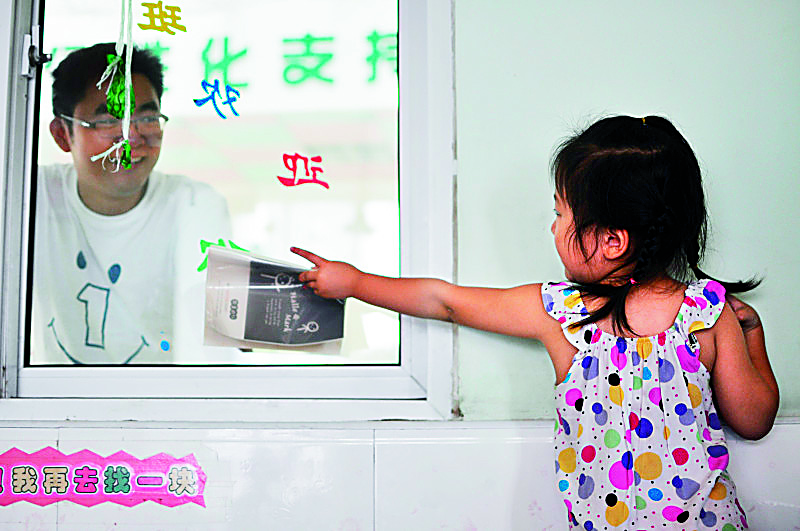
Wider impact
Qisehua currently has 351 attendees, and about 60 of them are special needs children.

Nondisabled children also benefit from the kindergarten's model of education, of course.
Sun Chun, a Qisehua graduate, works for a nonprofit social organization in Beijing that advocates equal opportunities for people with special needs and their families.
The 25-year-old said her childhood experience of meeting children with disabilities led her to choose special education as the subject of her master's at the University of Oregon in the United States, and also as the focus of her career.
"When I was in the kindergarten, a boy with Down syndrome, who was nicknamed Niuniu (meaning Ox), impressed me a lot. I treated children like him the same as the other kids, though I knew they were different in some ways. I was happy singing along when he played the electric organ," Sun said.
"We even performed on a program shown on Henan Television. Sometimes, Niuniu would offer to take care of me. I chose my major because I wanted to support people with special needs and their families. I think the career is meaningful."
In 2016, Qisehua set up a team to provide counseling for other kindergartens in Henan that receive children with special needs.
In September, Wei Huimin, a teacher from the Qisehua team, spoke at a seminar organized by the Geng Foundation in Beijing about serving rural people with disabilities. She told the audience that in her experience, rural kindergartens lack resources and professional teachers, and they are unable to meet the standards of even their lowest-level urban peers.
"When I visited a kindergarten in rural Henan, it could only guarantee one teacher per class. For a rural family, having a special needs child means the whole family feels a sense of shame and seldom communicates with relatives and friends, not to mention the problem of finding educational resources to support the child," she said.
"The rural kindergartens we support visit local village committees and disabled people's federations every year, and even hand out leaflets door-to-door, asking people to send children with special needs to them. Inclusive education should include all children with special needs in all cities and villages. No one should be left behind."